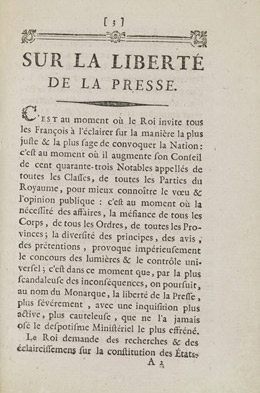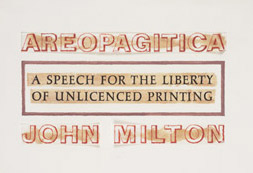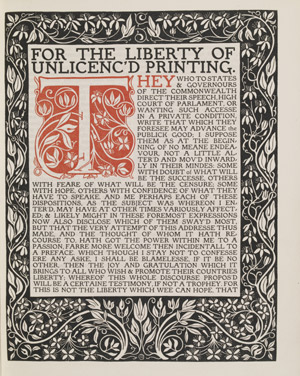To Know, to Utter, and to Argue Freely: the Areopagitica
When Parliament, alarmed by a glut of radical pamphlets following the outbreak of civil war, passed a licensing order intended to censor texts prior to publication, Milton turned his attention to the liberty of the press. In the Puritan spirit, he believed that to achieve virtue individuals must form their own judgements: truth must be won by personal understanding, not simply accepted on authority, and only by free debate can right ideas be distinguished from wrong.
Controversies over episcopacy can nowadays seem arcane, and debate on divorce has lost much of its urgency following twentieth-century legal changes, but the freedom to write and publish retains a vital significance. Milton was not a prototype liberal and the freedoms he advocated in the Areopagitica were partial and restricted, but his eloquence has lifted the work above the contingencies of seventeenth-century England to an exalted status in the history of human liberty.
 |
Areopagitica ( London, 1644). Syn.7.64.12133 |
 |
Mirabeau’s Sur la liberté de la presse (Paris?, 1788). 7200.d.203 |
 |
A dummy title of the 1973 Deighton Bell edition of the Areopagitica.
From MS Rampant Lions |
 |
The Eragny Press edition of the Areopagitica (London, 1904). Syn.4.90.73 |
|




